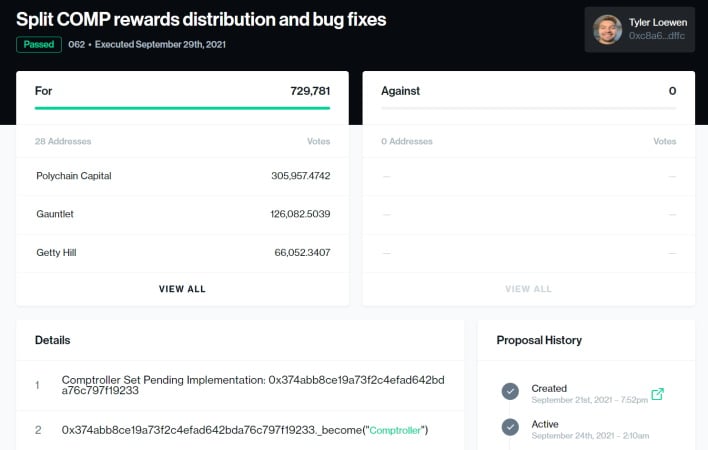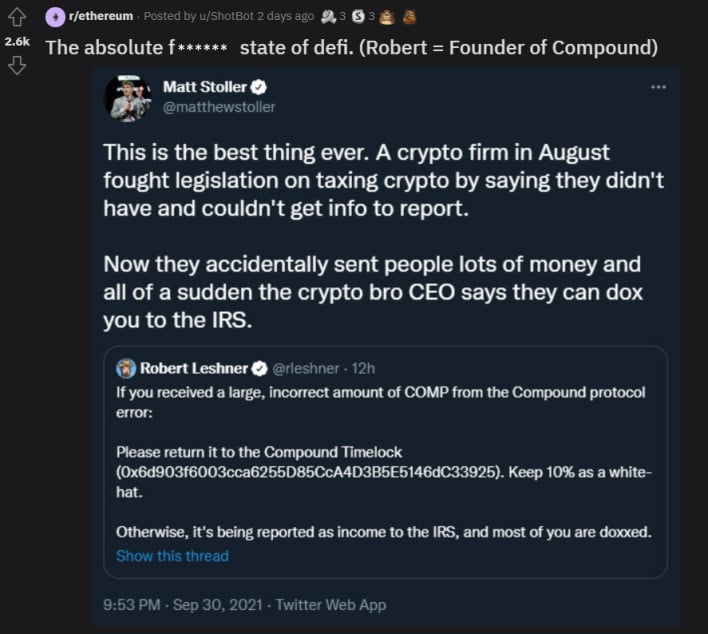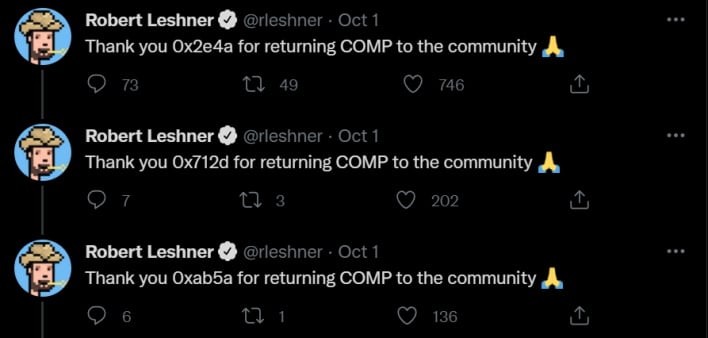If You Were Accidentally Gifted $20M In Cryptocurrency Would You Give It Back?
Compound, or COMP, is an ERC-20 asset "that empowers community governance of the Compound protocol; COMP token-holders and their delegates debate, propose, and vote on all changes to the protocol." This community-driven protocol then provides a "free and open financial infrastructure running on the Ethereum blockchain," according to Compound Finance developer relations Adam Bavosa. With this, both suppliers and borrowers in the markets associated with lending platform Compound are then given COMP to have a say in how things are run.
However, on September 21st, a problem with the COMP protocol was identified by Tyler Loewen, wherein "the COMP rewards rate for any single market is applied at the same rate for both suppliers and borrowers." To solve this issue, Loewen proposed changes to the comptroller logic to have differing COMP distribution rates for all markets associated with Compound, both on the borrow and supply side of the equation. Over the next seven days, this proposal was voted on, queued, and executed by the community without knowing the issues it would come to cause.
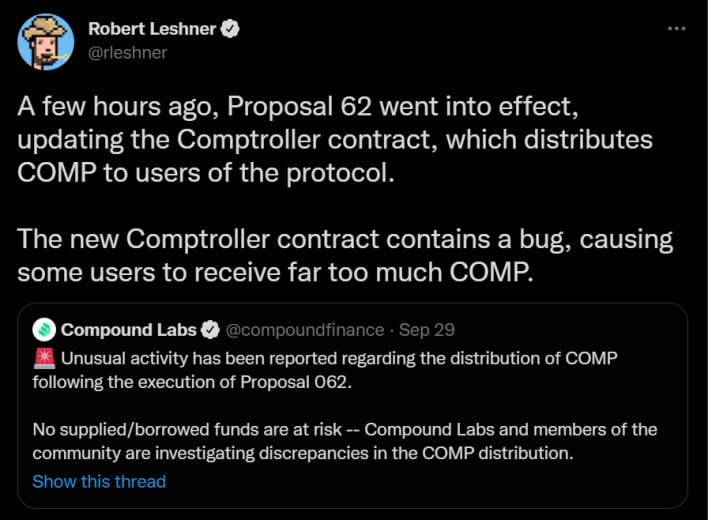
The first major alarm bells seemingly began on September 29th, where the Compound Finance Twitter account announced that "Unusual activity has been reported regarding the distribution of COMP following the execution of Proposal 062." While an investigation had begun, it was also stated that no supplied or borrowed funds were at risk while discrepancies in COMP distribution arose. In the initial chaos, some people got lucky with a few thousand COMP which was sold off or disappeared, but this was only the start of the problem.
Late in the evening on September 29th, Robert Leshner tweeted about this issue, stating that Prop 62 had an issue and that the comptroller contract had a limited amount of COMP, minimizing risk to, at worst, 280k COMP tokens worth around $82 million at the time of that tweet. At this time, though, the reversal process had already gone into effect, but it would take some time due to the processes that had been working problem-free previously.
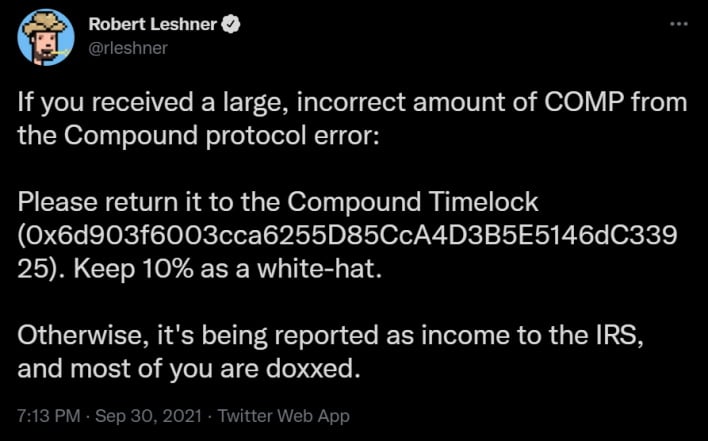
The next day, the full scope of the incident was likely realized, and Leshner rashly tweeted that if users who received a large amount of COMP did not return it, keeping 10% as thanks, Compound would report them to the IRS. This drew quick and quite harsh criticism from the community, which Leshner was ultimately trying to help. Still, this effort is antithetical to what the company has argued in the past, as many people called out on platforms like Reddit.
Leshner quickly apologized only two hours later for the harsh methodology he had employed to get some of the COMP back for the community, calling it a "bone-headed tweet." Interestingly, this was possibly a gut reaction to finding that Compound members graced by the windfall had no requirement to return the money. CNBC spoke with Shehan Chandrasekera, a CPA and head of tax strategy at crypto-tax software company CoinTracker.io, who explained that if a user wanted, they could pay the taxes on the "income" and keep the crypto in what we would compare to a large lottery win.
Despite this possibility, it appears that many people have begun to honorably return the lost COMP, but the situation is still developing. The total COMP at risk has now jumped up to a whopping $490K due to a function call which dropped more COMP into the comptroller. As of this publication, Leshner reported that $136K of COMP is still in the comptroller, and another $117K has been returned from the community. Further, the patches are still making their way through the governance problem, and thus Compound is not out of the woods yet. We have reached out to Leshner for comment, who has not yet replied.
Besides the main concerns with Compound Finance, when looking at the bigger picture, problems like this lend credence to the concerns about cryptocurrency replacing traditional financial institutions. However, evolution and innovation rarely comes without issues, and the technology industry has hammered that home time and time again. When it comes to millions of dollars, though, is cryptocurrency really that reliable just yet? Conversely, are some bumps in the road to be expected if the industry is to move forward? Let us know what you think of this entire situation and its implications in the comments below.

